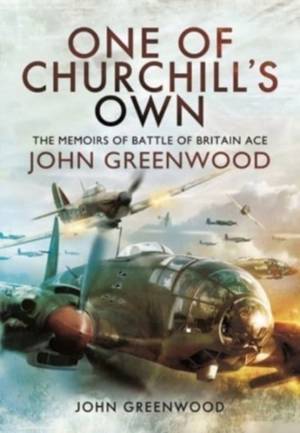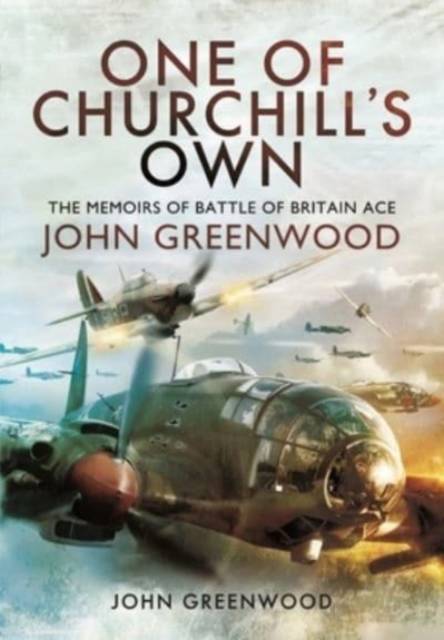
- Retrait gratuit dans votre magasin Club
- 7.000.000 titres dans notre catalogue
- Payer en toute sécurité
- Toujours un magasin près de chez vous
- Retrait gratuit dans votre magasin Club
- 7.000.0000 titres dans notre catalogue
- Payer en toute sécurité
- Toujours un magasin près de chez vous
One of Churchill's Own
The Memoirs of Battle of Britain Ace John Greenwood
John Greenwood
Livre broché | Anglais
20,95 €
+ 41 points
Format
Description
John Greenwood was born in East London on 3 April 1921. At the age of eighteen, in February 1939, he forged his fathers signature and joined the RAF on a short service commission. Seven months later, Britain declared war on Germany and his squadron, 253, was formed.
In May 1940, John and his fellow pilots were sent to France with 24 hours notice where he shot down a Dornier 17 and a Messerschmitt 109 the very next day. This terrific start heralded a sorry return to England, with only four pilots and three aircraft remaining. The squadron were sent to Kirton-in-Lindsey to reform, having lost half the Squadron in France, including the CO and both Flight Commanders. At the end of August 1940, the reformed Squadron flew down to Kenley to join the tumult of the Battle of Britain. The next day, John shot down a Heinkel III, before subsequently being credited with 1/2 a Junkers 88 and a Messerschmitt 109. An impressive tally, yet despite being credited with 5 and half victories in France and The Battle of Britain, he was, controversially, one of the few aces never to be awarded a DFC.
Although he emigrated to Australia in the 1950s, he returned to London for the 25th, 50th, and 60th Battle of Britain Anniversaries, then again in 2005 for the unveiling of the Battle of Britain monument, before passing away in 2014. He was the last surviving member of 253 Squadron and his voice records a unique perspective on just what it meant to be a member of Churchill's illustrious Few. This is his story.
In May 1940, John and his fellow pilots were sent to France with 24 hours notice where he shot down a Dornier 17 and a Messerschmitt 109 the very next day. This terrific start heralded a sorry return to England, with only four pilots and three aircraft remaining. The squadron were sent to Kirton-in-Lindsey to reform, having lost half the Squadron in France, including the CO and both Flight Commanders. At the end of August 1940, the reformed Squadron flew down to Kenley to join the tumult of the Battle of Britain. The next day, John shot down a Heinkel III, before subsequently being credited with 1/2 a Junkers 88 and a Messerschmitt 109. An impressive tally, yet despite being credited with 5 and half victories in France and The Battle of Britain, he was, controversially, one of the few aces never to be awarded a DFC.
Although he emigrated to Australia in the 1950s, he returned to London for the 25th, 50th, and 60th Battle of Britain Anniversaries, then again in 2005 for the unveiling of the Battle of Britain monument, before passing away in 2014. He was the last surviving member of 253 Squadron and his voice records a unique perspective on just what it meant to be a member of Churchill's illustrious Few. This is his story.
Spécifications
Parties prenantes
- Auteur(s) :
- Editeur:
Contenu
- Nombre de pages :
- 168
- Langue:
- Anglais
Caractéristiques
- EAN:
- 9781399014458
- Date de parution :
- 03-02-22
- Format:
- Livre broché
- Format numérique:
- Trade paperback (VS)
- Dimensions :
- 155 mm x 234 mm
- Poids :
- 338 g

Les avis
Nous publions uniquement les avis qui respectent les conditions requises. Consultez nos conditions pour les avis.






